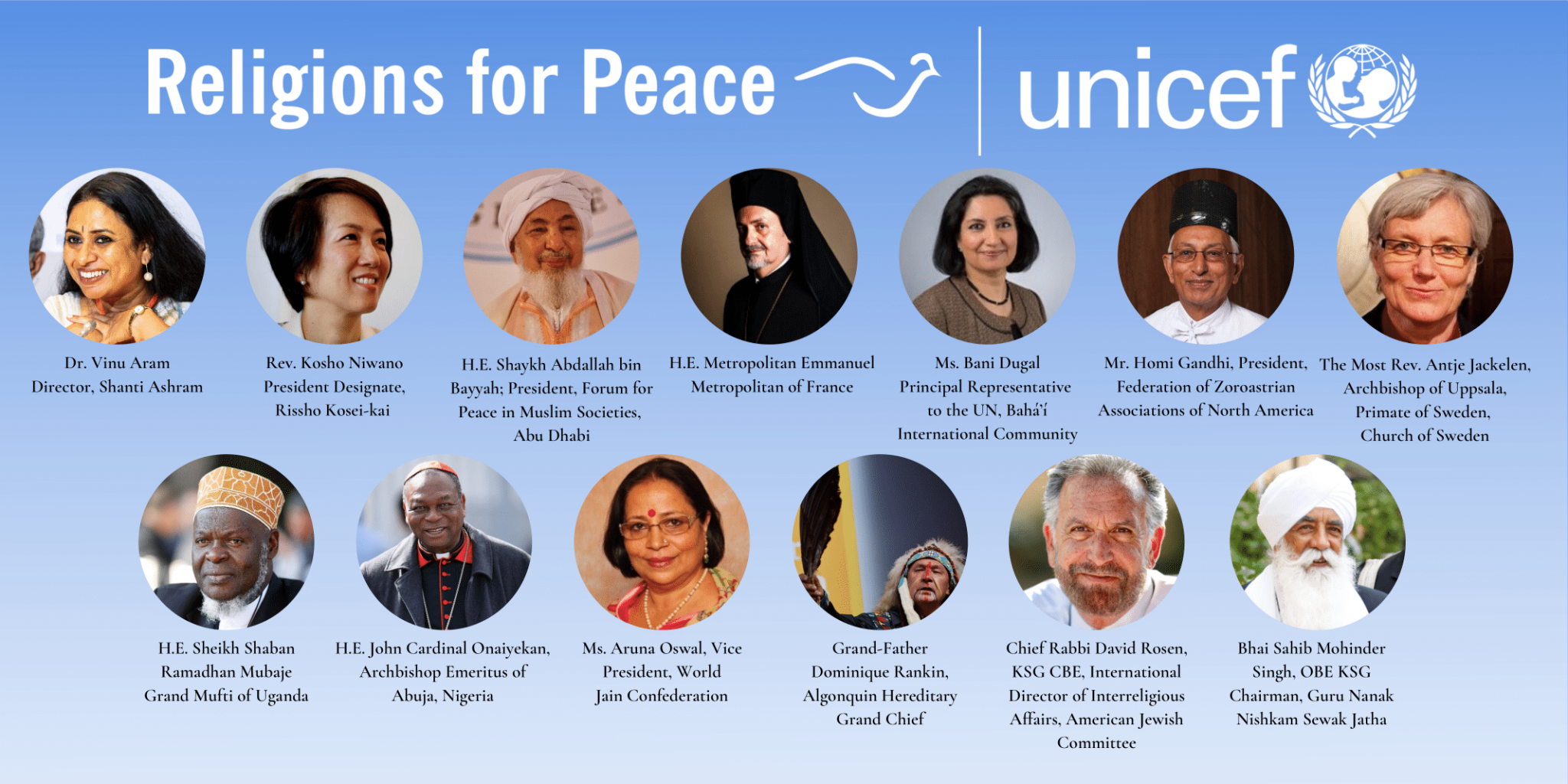Launch of Global Multi-religious Faith-in-Action COVID-19 Initiative
April 7, 2020(7 April 2020 | United Nations Plaza, New York) The COVID-19 pandemic has presented us with an unprecedented global challenge, touching every community in every nation of the world. The pandemic is causing systems of work, education, finance and domestic lives to grind to a halt, affecting nearly every aspect of people’s lives.
As the pandemic continues wreaking unimaginable sickness and increasing death tolls, we are particularly aware of the increased vulnerability of children, families and in particular girls. Children are facing a range of challenges to their health and safety: school closures, high levels of emotional distress, higher risks of violence and increased food insecurity. We are also seeing an increase in the number of orphans and in the incidence of other diseases due to the break in vaccination services. And we are seeing a growing need for financial and material support for households hardest hit by loss of income and resulting strains.
Today, as multitudes prepare for diverse religious observances (including Passover, Easter, Ramadan and Vaisakhi (Vesak) and Ridván), Religions for Peace (RfP) and the United Nations Children’s Fund (UNICEF), are joining forces to launch a global Multi-Religious Faith-in-Action Covid-19 Initiative to raise awareness of the impacts of this pandemic on the world’s youngest citizens.
The Initiative reflects the unique and critical roles played by religious leaders and actor, in influencing values, attitudes, behaviours and actions that affect the development and wellbeing of the world’s children. The Initiative will be coordinated by the global partnership on Faith and Positive Change for Children, Families and Communities , which involves Religions for Peace’s Interreligious Councils, including senior leaders of the world’s religious and spiritual traditions – Bahai, Buddhist, Christian, Hindu, Islamic, Jain, Jewish, Sikh, Zoroastrian and Indigenous spirituality. It also includes interfaith youth and women’s networks, in collaboration with the Joint Learning Initiative of Local Faith Communities (JLI) with its membership of International Faith-Based organizations.
This global partnership now commits to strengthening multi-religious action and community mobilization, in countering the COVID-19 pandemic. The global Multi-Religious Faith-in-Action Covid-19 Initiative calls upon all communities across the world, together with governments, UN entities, and broad civil society organisations, to join forces to:
ADAPT
…Faith gatherings, rituals and services in keeping with the RfP-ACT Alliance Statement and WHO Guidance on religious mass gatherings, burials and rituals, to:
Honour international and national health authorities’ guidance on public gatherings, physical distancing and other critical matters of public health related to faith community gatherings, services and rituals such as funerals, marriages and births for the health and safety of religious followers while developing alternative pastoral approaches.
PROMOTE
…Heightened focus on hygiene and sanitation in keeping with religious teachings and sacred texts that emphasize cleanliness as an element of holiness.
Listening, to children and families, through organized spaces for dialogue on-line, through media and where permitted house-to-house, and within small group fora (keeping distance).
Intergenerational dialogue to give voice to girls, boys together with parents and communities to find solutions to issues surrounding the epidemic.
Voices of faith and wider community engagement to inform local responses as well as national policy-making and programmes.
COUNTER
…All forms of stigma and discrimination associated with transmission of the disease with active promotion of attitudes and behaviours to uphold the dignity and rights of all people.
PROVIDE
…Active engagement of networks of religious communities including faith-based women, and youth, in collaboration with local governance structures, to provide organized voluntary services in:
Spiritual and emotional care and support for parents, children, the elderly and those experiencing disruption and distress in order to provide a source of support, peace, comfort and hope.
Positive age-specific and gender-responsive parenting guidance and support to families in relation to the health, development, protection and social and emotional wellbeing of children and young people, particularly those in low-income families and those most vulnerable and hardest to reach.
Youth-friendly communication and engagement including their support with more systematic use of technology and social media as a connective communication platform for communities during periods of physical distancing and beyond.
We stand united in this global Inter-faith moment of hope and solidarity for the survival, protection and development of our children, families and communities
